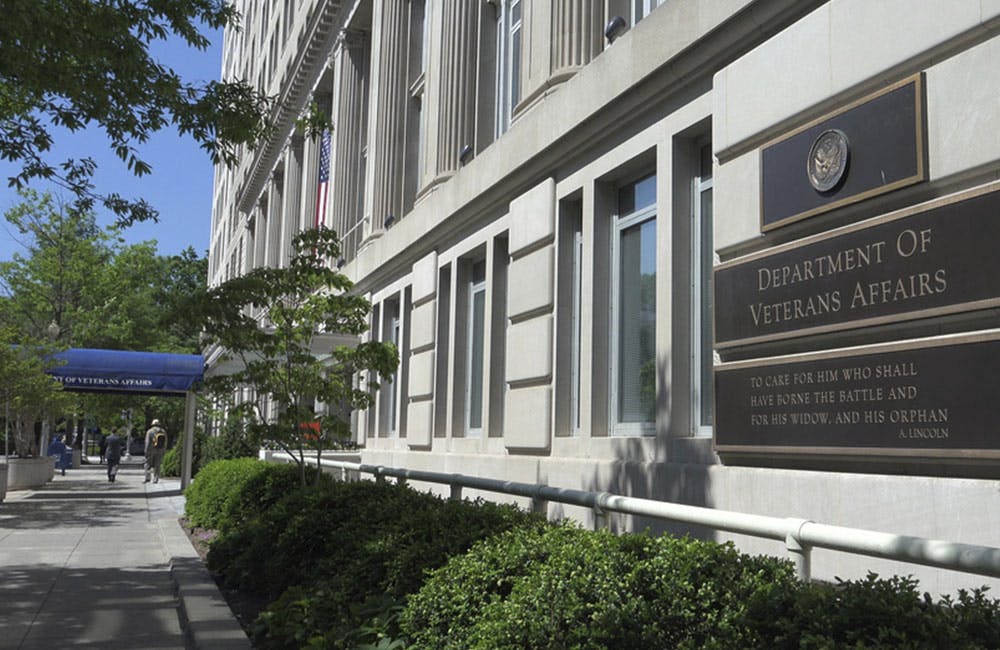White House Releases New Memos on AI Acquisition, Innovation
The White House unveiled new guidance on AI acquisition and innovation since replacing the Biden-era executive order earlier this year.

The Office of Management and Budget (OMB) unveiled two new artificial intelligence memos last Friday, directing agencies on AI acquisition and outlining next steps as agencies integrate the technology into their operations.
“OMB’s new policies demonstrate that the government is committed to spending American taxpayer dollars efficiently and responsibly, while increasing public trust through the federal use of AI,” Office of the Federal Chief Information Officer’s Greg Barbaccia said in a press release regarding the memos.
President Donald Trump replaced former President Joe Biden’s AI executive order with his own after taking office. Trump’s order focuses on removing barriers and driving innovation across government.
The new memos align with Trump’s AI executive order to “remove unnecessary bureaucratic restrictions, allow agencies to be more efficient and cost-effective, and support a competitive American AI marketplace,” said Lynne Parker, principal deputy director of the White House’s Office of Science and Technology Policy, in the press release.
Accelerating AI Innovation
The first memo, “Accelerating Federal Use of AI through Innovation, Governance, and Public Trust,” directs agencies remove barriers to AI while “maintaining strong safeguards for civil rights, civil liberties and privacy.”
“The United States is at the forefront of AI development, and agencies must adopt a forward-leaning and pro-innovation approach that takes advantage of this technology to help shape the future of government operations,” the memo said.
The memo continues efforts to establish chief AI officers and tasks the OMB Director with creating a CAIO AI Council within the next 90 days. The council will coordinate AI development and use across agencies, ensure compliance with relevant policies, promote shared tools and best practices and will automatically sunset five years after its creation unless extended by the OMB Director.
The directive also tasks agencies with the updating of its internal policies on IT infrastructure, data, cybersecurity and privacy, as well as creating a generative AI policy, within 270 days.
The guidance requires agencies to assess their AI adoption maturity to track progress and needs. It also establishes a “high-impact AI” category for use cases with potential risks to public rights or safety. AI accountability will follow existing government IT processes to avoid added bureaucracy. Agencies are also encouraged to prioritize American-made AI solutions.
Modernizing AI Acquisition
The second memo, “Driving Efficient Acquisition of Artificial Intelligence in Government,” directs agencies to “procure effective and trustworthy AI capabilities in a timely and cost-effective manner.”
The main thrust of the memo centers around three key items.
The first ensures government and the public benefit from a competitive American AI marketplace, direct agencies to “pay careful attention to vendor sourcing, data portability and long-term interoperability to avoid significant and costly dependencies on a single vendor.”
The second emphasizes monitoring AI performance and managing risk, calling for the evaluation and acquisition of AI systems that are “fit for purpose and deliver consistent results.”
The third promotes AI acquisition through cross-functional engagement. The memo states this coordination is “critical for surfacing potential issues sooner rather than later to avoid obstacles and risks in procuring new technology,” while directing agency officials to have “agile engagement” with the technology during the acquisition phase.
The memo also directs the General Services Administration, in coordination with OMB, to develop a plan to release publicly available guides to assist agencies with AI procurement within 100 days.
This is a carousel with manually rotating slides. Use Next and Previous buttons to navigate or jump to a slide with the slide dots
-

White House Science Chief: US-Driven AI Sets Global Standards
Michael Kratsios outlined how American AI technology on the global stage will help standardize the tech and counter China’s influence.
5m read -

Modernizing Critical Infrastructure in the Face of Global Threats
Officials are expanding the latest strategies in boosting defense infrastructure, including securing satellite communications, upgrading enterprise-wide technology, optimizing data management.
20m watch -

Trump AI Orders Call for Speed in Building Infrastructure
The directives call for expanding AI infrastructure, streamlining federal permitting and promoting AI exports.
4m read -

DOD Accelerates Software Modernization with Agile DevSecOps Push
The Pentagon's software implementation plan tackles cultural hurdles and integrates security early to deliver critical capabilities faster.
6m read -

White House Unveils AI Action Plan to Secure Global Dominance
The strategy outlines steps to accelerate private sector innovation, build critical infrastructure and advance U.S. leadership in AI policy and security.
3m read -

VA's Platform One Powers Rapid Innovation to Bolster Digital Services
VA's Platform One accelerates software development timelines from weeks to hours, ultimately enhancing digital services for veterans.
5m read -

Opinion: Original Intelligence Is the Missing Piece for AI Transformation
Limitations of AI agents and development drive growing needs for workforce development and "original intelligence."
3m read -

Pentagon's $200M AI Contracts Signal Broader Effort to Transform Talent
The Army is leveraging Silicon Valley, reservist programs and new hiring strategies to integrate critical digital skills in its ranks.
5m read -

AI Foundations Driving Government Efficiency
Federal agencies are modernizing systems, managing risk and building trust to scale responsible AI and drive government efficiency.
43m watch -

Agencies Tackle Infrastructure Challenges to Drive AI Adoption
Federal agencies are rethinking data strategies and IT modernization to drive mission impact and operational efficiency as new presidential directives guide next steps.
5m read Partner Content -

Generative AI Demands Federal Workforce Readiness, Officials Say
NASA and DOI outline new generative AI use cases and stress that successful AI adoption depends on strong change management.
6m read -

The Next AI Wave Requires Stronger Cyber Defenses, Data Management
IT officials warn of new vulnerabilities posed by AI as agencies continue to leverage the tech to boost operational efficiency.
5m read
















